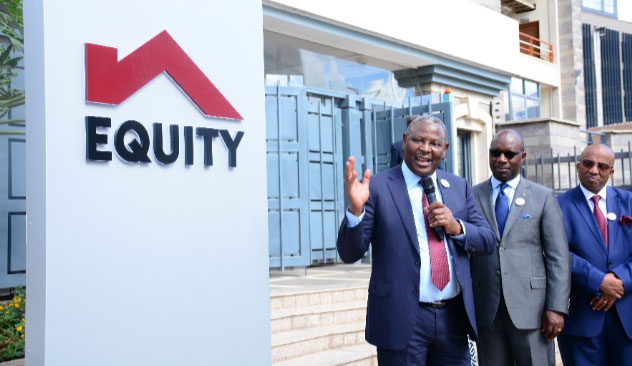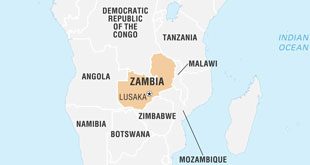
Nairobi, Kenya | THE INDEPENDENT | The Board of Directors of Equity Group Holdings Plc, the largest bank on the Nairobi Securities Exchange by market capitalization, has withdrawn its recommendation of a Ksh. 9.5 billion ($88 million) dividend payout to its shareholders.
According to a statement, Equity states that “the withdrawal of the dividend payout speaks to the Board’s assessment of risk, post balance sheet date of December 31, 2019 and of the Group’s approach to prudent risk mitigation and management.”
The COVID-19 global health pandemic has led to a lockdown across Africa and the world, which has induced a complex and multi-faceted global crisis of health, economic, and social challenges of an unprecedented magnitude.
“The Equity Group Holdings Board took a conservative approach that recognizes the emerging unquantified risk of the pandemic and opted to preserve capital in the face of the prevailing uncertainty,” said Dr. James Mwangi, the Group CEO and Managing Director. He added that, “A strong capital and liquidity position gives us the strength and capacity to cushion our business and accommodate and walk with our customers during these challenging times”.
Further, the statement from Equity said “the board would like to encourage the Bank’s customers to seek opportunities to innovate in the age of the pandemic, and to keep looking for growth possibilities even in this trying time in order to preserve cash and capital, and to not just survive the crisis but to be ready to thrive in the New Normal.”
By withdrawing the recommendation for a dividend payout, the statement added, “the Board is exercising financial prudence so as to conserve cash to enable the Group to respond appropriately to the unfolding crisis in terms of supporting its customers, and to be able to direct cash resources to potential opportunities that may arise as economies in which Equity Group Holdings operates begin to recover.”
The pandemic’s effects have created a significant drop in the global GDP, and a substantial loss of employment leading to an economic recession which economists are projecting will evolve into a global depression worse than the Great Depression of the 1930’s.
Equity well placed
“If the economic crisis mutates into a financial crisis, Equity Group will be well placed to weather the challenge with a strong capital base, strong liquidity and an agile balance sheet that improves its leverage, and would allow the financial services group to shield and accommodate its customers throughout this period of uncertainty,“ said Dr. Mwangi.
He added, “However, should the crisis not play out as anticipated, the Board will explore various options and make suitable recommendations that will enhance shareholder value.”
With this approach, the Group leadership and management can focus on strategically positioning the business, in order to protect and preserve its customer base through loan accommodations and rescheduling/restructuring to enable them to go through the prevailing turbulence while at the same time preserving cash to shore up the financial revival and growth of its customers’ businesses post the COVID-19 crisis.
The Board continues to evaluate the potential impact of the pandemic on the Group and to formulate and implement strategic plans to mitigate any effects, and will, in the usual manner ensure that it keeps the shareholders and other stakeholders informed.
Global outlook worrying
The global economic outlook has worsened considerably since the beginning of the year.
The United Kingdom has entered a severe recession last experienced in the 17th Century, while the United States unemployment rate is expected to reach 25% by the end of 2020 with 39.6 million people already unemployed. The most recent global growth projections from the International
Monetary Fund (IMF) have revised the global economic outlook to below the 2.9% achieved in 2019 from an initial projection of 3.3% to -3.0% (negative 3.0%) of GDP growth rate, which they feel is optimistic. Cautiously, the IMF also projects that if the pandemic fades in the second half of 2020 and if policy actions taken around the world are effective in preventing widespread bankruptcies, extended job losses, and system-wide financial strains, global growth could rebound to 5.8% in 2021.
 The Independent Uganda: You get the Truth we Pay the Price
The Independent Uganda: You get the Truth we Pay the Price


